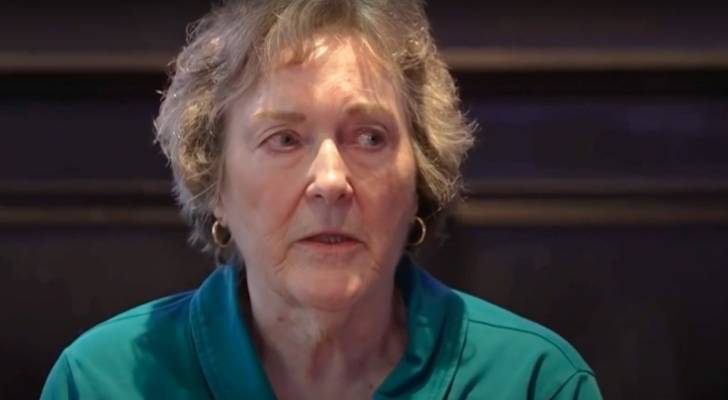
Many seniors across the country would consider their senior living community a safe haven. But for some, these properties turn out to be money traps right when their personal finances are most fragile.
Martha Bray, an 84-year-old Vietnam veteran, found herself trapped in such an unfortunate situation.
After 10 years of living at River Glen of St. Charles, a senior living community near Chicago that she describes as her “dream” home, the property was acquired by two investment companies that swiftly raised rents. She told NBC News that her monthly maintenance surged from $1,395 to $6,500 — a 365% increase.
Don’t miss
- I’m 49 years old and have nothing saved for retirement — what should I do? Don’t panic. Here are 5 of the easiest ways you can catch up (and fast)
- Gain potential quarterly income through this $1B private real estate fund — even if you’re not a millionaire. Here’s how to get started with as little as $10
- Thanks to Jeff Bezos, you can now become a landlord for as little as $100 — and no, you don’t have to deal with tenants or fix freezers. Here’s how
Unable to pay this extortionate rate, Bray ultimately decided to move out and receive only 75% of the $314,000 entry fee she paid to move in. Based on the property’s value at that time, she estimates her total loss at $100,000.
“I just want people to know not to believe a damn word anybody says,” she told NBC News.
“Your money is not safe.”
Indeed, many seniors are exposed to similar risks when they sign up for these seniors communities. Here’s why the industry’s image as a safe haven is looking increasingly shaky.
Private equity’s invasion
Factors that make seniors living facilities valuable to many families also make them attractive to investors. Elevated rents, recurring revenue and the nation’s aging population has made this a lucrative asset class for private equity firms.
According to the American Seniors Housing Association’s (ASHA) annual report on the industry, eight of the 50 largest operators in the U.S. senior housing space were private equity firms in 2024. And at least three had partnerships with real estate investment trusts (REITs).
Private equity’s influence could expand further in the years ahead. A survey of seniors housing trends by global real estate investment firm JLL, showed that 78% of institutional investors planned to expand their investments in senior care facilities. “Opportunities exist for investors to acquire high-quality real estate at below replacement cost,” says the 2025 report.
The impact of private equity ownership on residents of these facilities can be “significant and troubling,” according to the Center for Medicare Advocacy.
According to their analysis, properties taken over by one private equity firm in Iowa received lower overall and health inspection ratings, had fewer nursing staff, faced more abuse citations, incurred higher federal civil monetary penalties, and experienced more payment denials for new admissions
Put simply, some investment firms may be incentivized to put profits and shareholder returns above the interests of vulnerable seniors. If you or your loved ones live in such facilities or are considering moving in, you should take some steps to protect yourself.
Read more: Car insurance premiums could spike 8% by the end of 2025 — thanks to tariffs on car imports and auto parts from Canada and Mexico. But here’s how 2 minutes can save you hundreds of dollars right now
Protect yourself and your loved ones
There are several ways you and your family can reduce the risk of financial damages from seniors living arrangements.
Before you sign up, make sure you review the contract carefully and consider having the terms reviewed by an experienced lawyer. You should also try to find out which entity owns the property you or a loved one is considering.
There are minimal disclosure requirements for senior living property transactions, so it’s not easy to find out if a facility is owned by a private equity firm, but the Centers for Medicare & Medicaid Services (CMS) offers some limited information on its website about “affiliated entity performance” that could be helpful.
The CMS is also advocating for tighter regulations and more disclosures to bring transparency to the industry and help consumers find out who owns the properties they or their loved ones live in.
Last year, Democratic Senators Ed Markey and Elizabeth Warren introduced the Corporate Crimes Against Health Care Act, which aims to “root out corporate greed and private equity abuse in the health care system.”
If you believe the industry needs greater transparency and tighter protections, reach out to your local representative to encourage them to support the bill as it makes its way through Congress.
What to read next
- Want an extra $1,300,000 when you retire? Dave Ramsey says this 7-step plan ‘works every single time’ to kill debt, get rich in America — and that ‘anyone’ can do it
- Here are 5 ‘must have’ items that Americans (almost) always overpay for — and very quickly regret. How many are hurting you?
- There’s a 60% chance of a recession hitting the American economy this year — protect your retirement savings with these essential money moves ASAP (most of which you can complete in just minutes)
This article provides information only and should not be construed as advice. It is provided without warranty of any kind.